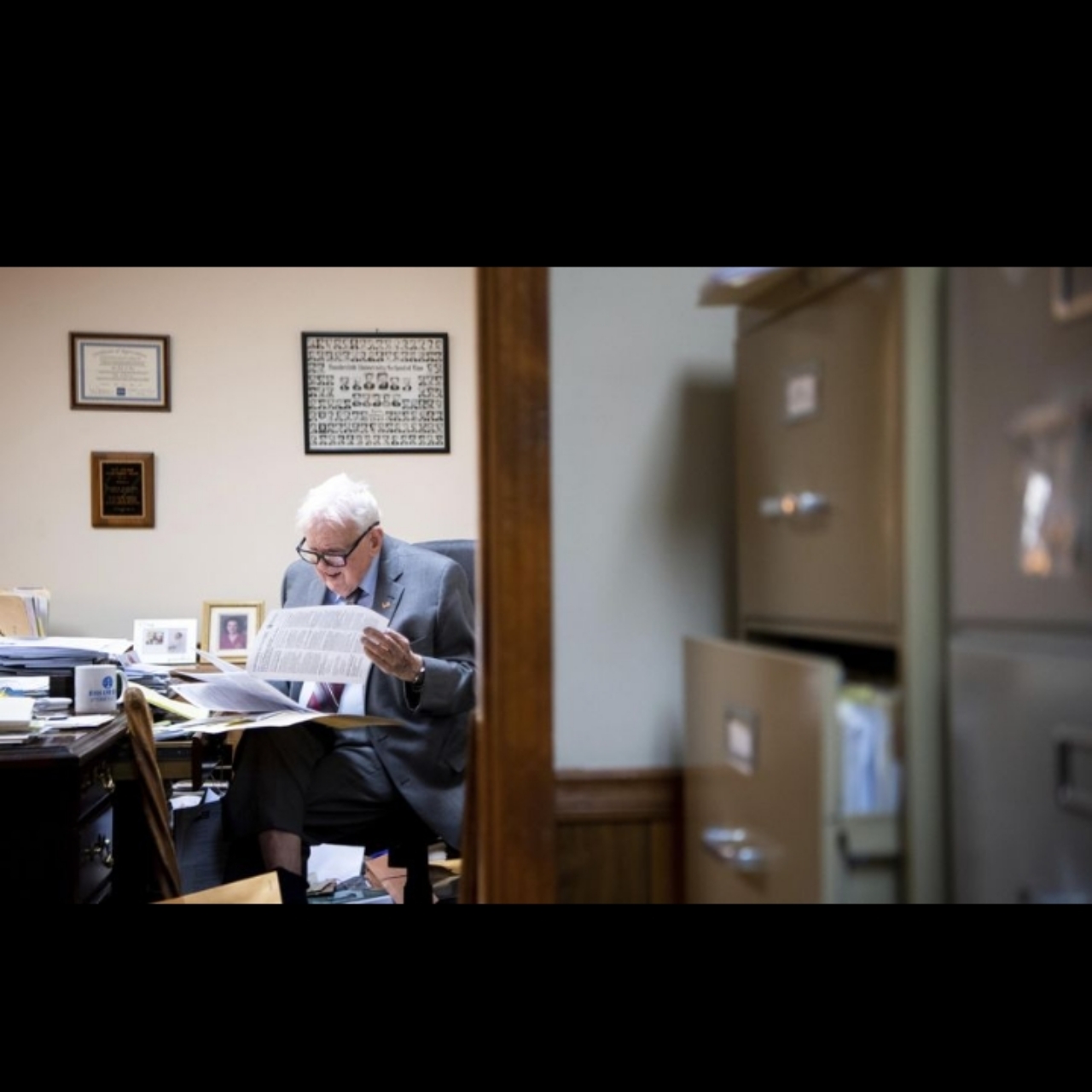Around 6 a.m., James L. Bass Jr. microwaves a frozen sausage and biscuit, a simple but significant task. Bass didn’t learn how to make his own breakfast until 2014, when his wife of 62 years, Erma, died.
And Bass needs breakfast because, at 97, he still goes to work most weekdays — in a suit and tie — at the law office he opened in Carthage, Tennessee, 70 years ago.
“I grew up working, and I have no desire to retire,” he said, with a gentle twang and a little rasp in his voice. “When night comes, I know I put a day’s work in, and I can sleep well.”
His two children live nearby, and they support their father working, believing that the job gives him purpose and focus after his wife died. His children believe the job keeps Bass mentally focused, staving off depression or dementia.
“I want him to work,” said his daughter, Jane Bass Turner, 56, a nurse practitioner.
“I want him to die exactly where he has been happy, and that’s at work behind his desk.”
Bass’ son, David, 60, who joined his father’s law office 35 years ago, does most of the legal heavy lifting. But the elder Bass still handles property title searches, deeds and estates.
Bass also spends much of the week greeting old clients and community leaders who stop by the Main Street office across from the county courthouse.
And, leaning on a thick wooden walking stick his mother-in-law used to use, Bass goes to events now and then.
Last month, dozens of staffers and board members greeted him warmly (“Hello, Mr. Bass!”) when he showed up at a lunchtime fish fry at the Smith County Utility District, where Bass served as counsel for 52 years.
In fact, Bass helped create the water system that allowed him and other county residents to stop using well water that often smelled like sulfur.
“Mr. Bass is always welcome here. He’s been here from the beginning,” said Kenneth Nixon, president of the utility’s board for 20 years. “His knowledge of the system is unsurpassed.”
Bass gets through his days with help from his children and the office staff.
His daughter picks him up in the morning after Bass puts on a suit and makes and packs a lunch of a turkey or ham sandwich with a bag of chips.
After he gets to the office, Bass has a cup of coffee and skims the morning newspaper before turning to a handful of “active files” on his desk. An office assistant prints out any emails that have been sent to him because Bass doesn’t use a laptop.
“In 1996, when computers came into being, I miscalculated the importance that thing would have,” he said. “I did not take up the computer, which I should have.”
Bass usually eats lunch at his desk, and afterward, he shuts his office door, sits in a reclining chair in his office, puts on a blanket, leans back and takes a nap.
He’ll do some more work and then his son takes him home around 4 p.m.
One of his kids usually makes sure he has dinner, and Bass will watch the 6 p.m. news and go to sleep shortly after that.
Wednesday is casual day — he’ll wear a sweater and slacks, no suit. “Sometimes I wear a pair of blue jeans!” he said loudly, smiling.
Saturday is a day to spend with family, the grandchildren when possible.
Sunday is church, always in a suit and tie, always at the Methodist church.
“It’s pretty much a routine, and I like it.”
Bass also stays in touch with surviving members of the 457th Bomb Group, his Army unit from World War II. He has researched and written several books on that unit, selling a few hundred to fellow WWII veterans.
Bass has had few health problems, though he does some dialysis at home to deal with kidney problems. He started using the walking stick only three years ago, and he stopped driving only two years ago, after his doctor suggested it.
What does Bass want to mark his 100th birthday?
“Peace and quiet.”




914486 770807The leading source for trustworthy and timely health and medical news and info. 838964